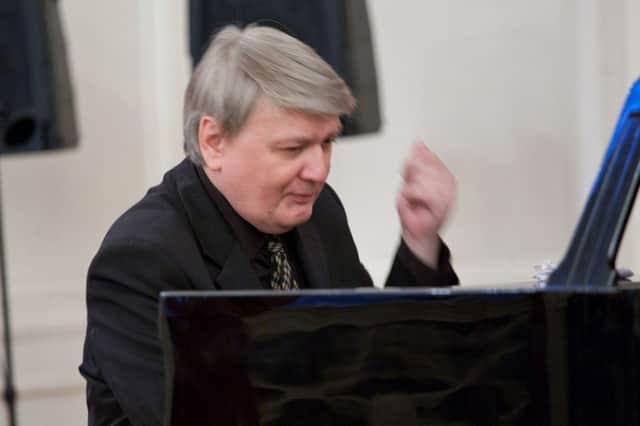Russian master Victor Ryabchikov joins the Festival of Chichester


The pianist will offer a programme of nocturnes by Chopin, Field, Balakirev and Glinka in this year’s Pallant Festival Concert at Pallant House Gallery on Saturday, June 20 at 12 noon.
It’s a coup for the Festival for, as Victor says, he doesn’t travel quite so much these days: “The last time I was in England was 2008. I was in England from 2000 every year two or three times. I played in Scotland and Oxford and two or three times as well as Chichester (for the old Chichester Festivities). But I haven’t been in England so much recently because I had a manager who makes concerts for me who is now old and ill. He can’t arrange concerts for me, so it is seven years that I did not come to England.”
Advertisement
Hide AdAdvertisement
Hide AdVictor is delighted to be bringing back to the UK the music of Dublin-born John Field (1782-1837), a pianist, composer and teacher who settled in Russia.
“I will play some fantastic pieces by Field, a name who is maybe not very popular in other countries now. He came to Russia and founded a Russian piano school.”
And in that sense, musically, Victor counts himself a direct descendant of the great man: “For the Russian people, being a virtuoso is not the most important thing. The most important thing is heart. His poetic sound was very, very important for the Russian people. He lived for many years in Russia, like Handel in England. English people think of Handel being an English composer. Russian people think of Field as being a Russian composer.”
And the approach lives on in Victor who has himself been described as a poet of the piano. Since his first appearance in the West in the early 90s, at the relatively-advanced age of 39, he has rapidly built a reputation as a pianist of extraordinary sensitivity and charm. His recordings, released by BIS Records, of Mikhail Glinka’s complete piano music have received rave reviews around the world. His highly-personal interpretations of Chopin, Rachmaninov, Glinka and other romantic composers of the 19th century have impressed audiences in Russia, Britain, France, Sweden, Switzerland, Holland, Italy, Germany and South Africa.
Advertisement
Hide AdAdvertisement
Hide AdBorn in Tashkent, Victor studied there at the Music Conservatoire with Angelina Danilova, the teacher he regards as having had the greatest influence on his development. The collapse of the Soviet Union enabled Victor to travel: “But in the Soviet Union there were many, many good things, like gratis education. Now if I wanted to go to a conservatoire, it would be very, very expensive. Now if I wanted to go, I would have to pay one year or two years for private lessons. In Soviet, times we had gratis education which was a big thing, but we couldn’t go abroad, which was a big minus.
“But in Soviet times, if you are not a laureate in some competitions, you can’t play as a soloist in big halls. I am not a competitions pianist. My nerves would not be good for competitions! I always think that other people play much better than me. If the USSR had continued, maybe I could not have stayed as a pianist.”